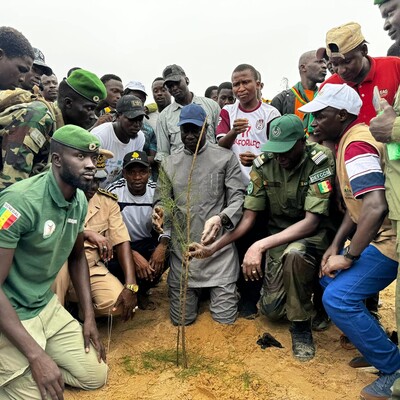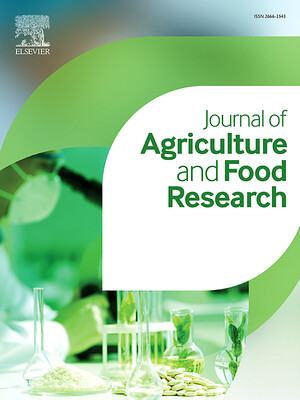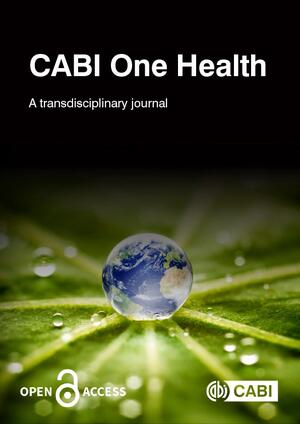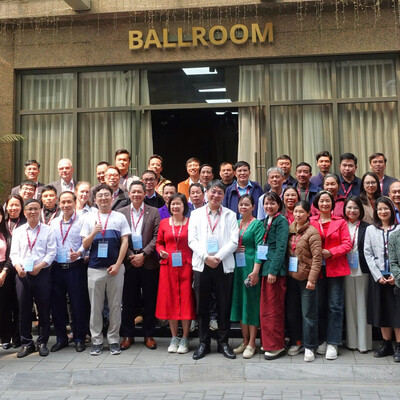

Empowering dryland communities through drought early warnings to enhance resilience
Amidst the challenges of drought, climate change, conflicts, and other shocks that significantly impact food security and livelihoods globally, the importance of early and anticipatory action has gained significant traction. This is particularly crucial in aiding pastoral communities in preparing for crises, underscoring the vital role of early warning systems in enhancing resilience.
During the CGIAR Science Week at the UN headquarters in Nairobi, Kenya, 7-11 April, scientists from diverse backgrounds gathered for a session aimed at fostering climate-smart agriculture and promoting early action against shocks and crises. This collaborative effort is part of a multi-centre Initiative, with the International Livestock Research Institute (ILRI) playing a significant role.
During the side session, Tahira Mohamed and Samuel Derbyshire, post-doctoral scientists at ILRI affiliated with the Jameel Observatory for Food Security Early Action and the SPARC program, gave presentations focusing on early actions to support pastoralism in recurrent and protracted crises in the Horn of Africa. The session was chaired by ILRI principal livestock scientist Alan Duncan and facilitated by Jameel Observatory communication and engagement lead Peter Ballantyne.
Mohamed noted that even though several programs are in place to build pastoral communities' resilience, disconnects exist between the actual practice and the resilience envisioned in support programs. She pointed out that resilience programs often assume that pastoral systems are stable with calculable risks, while in real life, they are vibrant, meaning they are dynamic and constantly changing. Pastoralists usually have to deal with different complexities, such as gender and livestock ownership, uncertainties, such as disease outbreaks and animal thefts, in addition to drought and other climate-related risks. She emphasized the need for a contextual understanding of pastoral resilience, early warning systems, and a unified approach to providing resilience support. This has to underscore the integral role of the pastoralists, as stakeholders, in the process of enhancing resilience in dryland communities.

On his part, Derbyshire added that they have also been seeking to understand the scope for improving the impact of the existing early warning systems to allow them to be better at supporting pastoralists. He noted that this involves orienting the development world and aid systems in finding new approaches that focus on collective challenges and vulnerabilities. Subsequently, the solutions offered need to be community-focused and adaptable to the existing needs.
Rachel McDonnell, from the International Water Research Institute, introduced the recently launched CGIAR drought action catalyst. This platform is designed to accelerate drought resilience by bridging gaps between research, innovation, and implementation. It provides decision-makers and governments with a one-stop access to tailored solutions that address local vulnerabilities and foster long-term sustainability. By leveraging CGIAR’s global network, the catalyst will champion efforts to integrate policies, mobilize financing, and implement effective drought management strategies. The initiative also places a strong emphasis on co-designing tools and solutions with local stakeholders to ensure their relevance and sustainability.
The catalyst further accelerates partnerships with the people who understand the actual context and what would work best for each. It includes a monitoring and early warning system, a vulnerability and impact assessment, and a drought preparedness response and mitigation components to support decision-makers in their efforts to enhance drought resilience.
Sintayehu Alemayehu from the Alliance Bioversity and CIAT introduced a platform designed to facilitate water and pasture monitoring in Ethiopia’s drylands, noting the crucial need to integrate traditional knowledge with scientific approaches to develop early warning systems. This system, he emphasized, needs to be acceptable to the community, policymakers, and institutionalized into the government system to enable its efficient uptake and use.

Following the presentations, a panel provided diverse perspectives: Guyo Malicha Roba, head of the Jameel Observatory at the ILRI; Tess Morris, food and agriculture advisor at the United Kingdom Foreign, Commonwealth and Development Office; Nancy Balfour, founding director of the Centre for Humanitarian Change, and Dereje Wakjira, director of the IGAD Center for Pastoral Areas and Livestock Development.
The session was organized in line with the CGIAR 2030 Global Strategy for Resilient Drylands, which sets out CGIAR’s commitment to harnessing cutting-edge agri-science and technology to tackle the complex challenges facing global dryland communities, exacerbated by climate change, conflicts, outdated agricultural practices, and population growth. It embodies a unified, multi-centred approach that fosters climate-smart agriculture and promotes early action against shocks and crises, generating resilient livelihoods across dryland communities.
More:
- Jameel Observatory news item
- Presentation by Tahira Mohamed and Samuel Derbyshire
- Presentation by Sintayehu Alemayehu
- Blogpost about the presentation by Sintayehu Alemayehu
- CGIAR drought action catalyst
- Delivering resilient drylands theme day session
You may also like
Exploring integration of KAZNET into Ethiopia’s national and regional resilience programming and information systems

Opinion and analysis
Striking a sustainable balance between livestock and the environment is crucial to Africa’s future
Related Publications

Cassava as a feedstuff for ruminant feeding system in Belt and Road countries: innovations, benefits and challenges
- Hossain, M.D.
- Yan, Q.
- Zhou, Z.
- Zhang, X.
- Wittayakun, S.
- Napasirth, V.
- Napasirth, P.
- Lukuyu, Ben A.

Effects of livestock related gender roles on pastoral children and their implication to RVF risk exposure
- Mutambo, Irene N.
- Bett, Bernard
- Bukachi, S.A.

Adopting technologies to enhance productivity, resilience and equity in ruminant livestock resources under pastoral systems of Africa
- Ojango, Julie M.K.
- Kirui, Peter
- Tumanka, F.O.
- Rowan, T.N.
- Pedreira, B.C.
- Mason, K.M.
- Martinez, C.C.

Training of dairy farmers and extension workers on performance recording in Ethiopia
- Meseret, Selam
- Jufar, B.
- Dagnew, M.
- Damtie, M.
- Hassen, Messay













